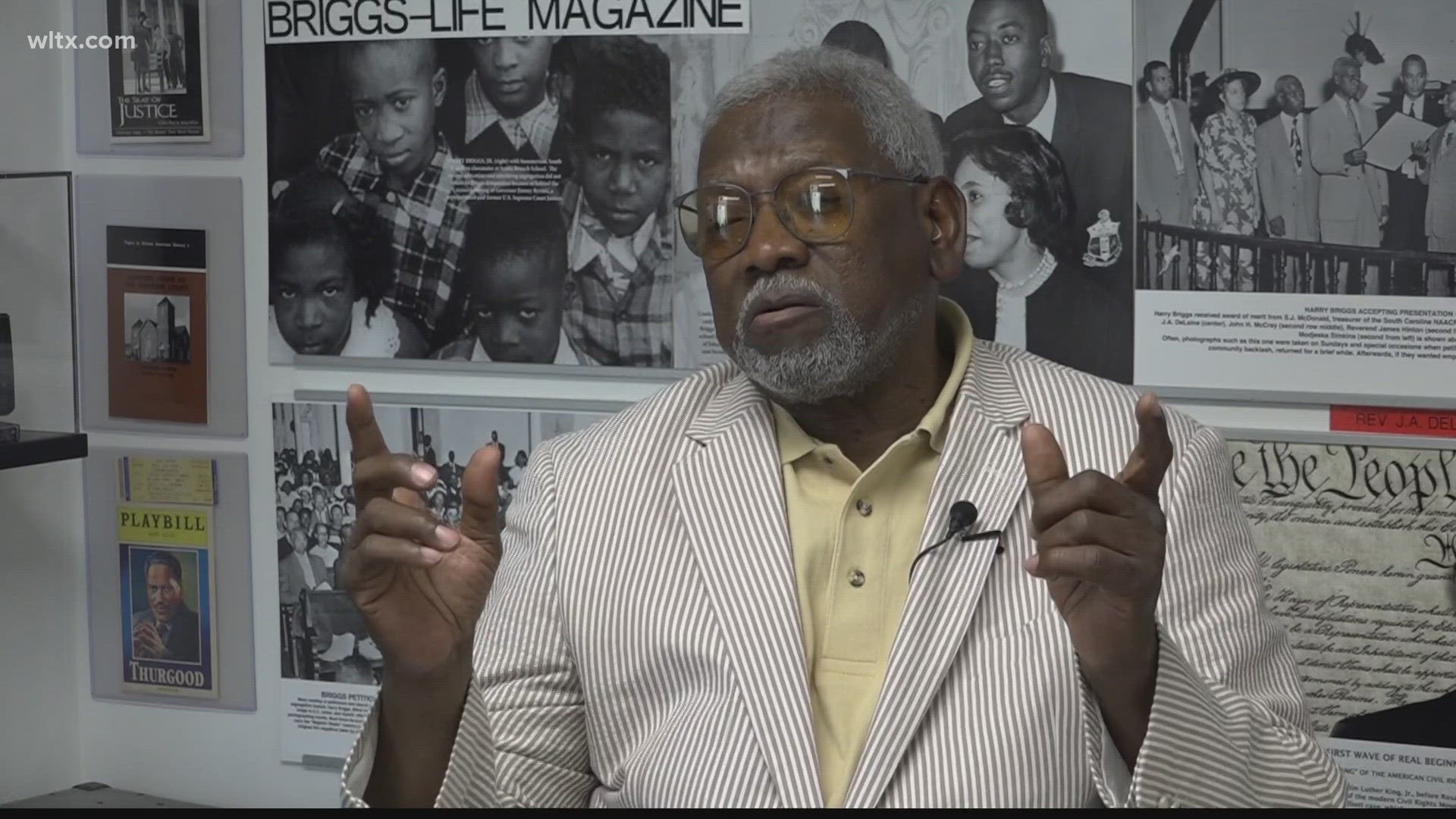CLARENDON COUNTY, S.C. — More than 70 years ago, the Briggs v. Elliott case challenged school segregation in Clarendon County. But it's not as well known as the Brown Decision a few years later, where the Supreme Court ruled segregation violated the Constitution.
Activists in South Carolina are working to make this part of our state's history never forgotten.
"It's still the biggest explosion since the Emancipation Proclamation," said Nathaniel Briggs, “No other legal case came before the courts that affected the country the way this case did."
Nathaniel Briggs is the son of the late Harry Briggs. You may recognize the name from the 1950 Briggs v. Elliott court case. It was filed by parents of black students who went to school in Clarendon County challenging segregation in state public schools.
Ultimately, it was merged with the more famous 1954 Brown v. Board of Education case of Topeka, Kansas. That's where the U.S. Supreme Court threw out the old separate but equal rule in America which led to the desegregation of America's schools.
“My parents Eliza and Harry Briggs were the two top names on the petition. That’s why I stand for them. They’re no longer here," said Briggs.
Although the Briggs case happened first, he says it's much lesser known to the public.
“You ask 90 percent of the educators in the country it’s about Brown. It can’t be just about Brown if the biggest struggle came from the South in South Carolina.”
He plans to help change that. In August, Briggs along with Cecil Williams, James Felder, and other activists plan to take to the steps of the U.S. Supreme Court. They want to ask the court to reorder the cases that helped desegregate schools across the country.
If they're successful, it would actually change the name of the Brown Decision to Briggs. They want this reorder to properly acknowledge that the Briggs v. Elliott case came before Brown v. Board.

